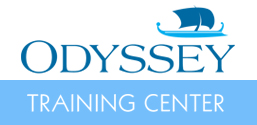|
No events, Sunday, March 1
1
No events, Sunday, March 1
1
|
No events, Monday, March 2
2
No events, Monday, March 2
2
|
No events, Tuesday, March 3
3
No events, Tuesday, March 3
3
|
No events, Wednesday, March 4
4
No events, Wednesday, March 4
4
|
No events, Thursday, March 5
5
No events, Thursday, March 5
5
|
No events, Friday, March 6
6
No events, Friday, March 6
6
|
No events, Saturday, March 7
7
No events, Saturday, March 7
7
|
|
No events, Sunday, March 8
8
No events, Sunday, March 8
8
|
No events, Monday, March 9
9
No events, Monday, March 9
9
|
No events, Tuesday, March 10
10
No events, Tuesday, March 10
10
|
No events, Wednesday, March 11
11
No events, Wednesday, March 11
11
|
No events, Thursday, March 12
12
No events, Thursday, March 12
12
|
No events, Friday, March 13
13
No events, Friday, March 13
13
|
No events, Saturday, March 14
14
No events, Saturday, March 14
14
|
|
No events, Sunday, March 15
15
No events, Sunday, March 15
15
|
No events, Monday, March 16
16
No events, Monday, March 16
16
|
No events, Tuesday, March 17
17
No events, Tuesday, March 17
17
|
No events, Wednesday, March 18
18
No events, Wednesday, March 18
18
|
No events, Thursday, March 19
19
No events, Thursday, March 19
19
|
No events, Friday, March 20
20
No events, Friday, March 20
20
|
No events, Saturday, March 21
21
No events, Saturday, March 21
21
|
|
No events, Sunday, March 22
22
No events, Sunday, March 22
22
|
No events, Monday, March 23
23
No events, Monday, March 23
23
|
No events, Tuesday, March 24
24
No events, Tuesday, March 24
24
|
No events, Wednesday, March 25
25
No events, Wednesday, March 25
25
|
No events, Thursday, March 26
26
No events, Thursday, March 26
26
|
No events, Friday, March 27
27
No events, Friday, March 27
27
|
No events, Saturday, March 28
28
No events, Saturday, March 28
28
|
|
No events, Sunday, March 29
29
No events, Sunday, March 29
29
|
No events, Monday, March 30
30
No events, Monday, March 30
30
|
No events, Tuesday, March 31
31
No events, Tuesday, March 31
31
|
|
|
|
|
